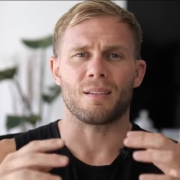In his book – The 7 Habits of Highly Effective People – Stephen Covey dedicates a chapter to Habit No.5: Seek First to Understand, Then to Be Understood.
We are all guilty of being too keen to help someone with a problem they have. We jump in and explain what we think they should do or what we think they need to hear. And it will often come from a good place; “You should try doing this…” or “what you need is…”. But really, all we’re doing in these circumstances is passing on our thoughts based on what we think.
Walk a mile in someone else’s shoes…
How can we really tell someone what we think they need, or need to do without fully understanding their needs? Stephen Covey uses an example of using someone else’s glasses to fix their eyesight. Just because the glasses might benefit the person who is wearing them, doesn’t mean they’ll be any good to anyone else who has eyesight issues.
We can’t fully ‘fix’ someone’s issues, if we don’t fully understand what the problem is. And what works for us, won’t always work for someone else.
I see this a lot in the mental health awareness and ambassador/first aider training that I deliver. Our instinct is to tell a person suffering from poor mental health what we think they should do to get ‘better’. We forget to seek to understand and jump straight to wanting them to understand what we think the problem is and what they should do.
More often than not, the majority of us don’t actually want to hear someone giving us their solutions to our problems, we just want them to listen and understand.
And there lies the problem… Listening.
When did we learn to listen?
Covey describes the 4 basic types of communication:
Reading
Writing
Speaking
Listening
But what ones do we use the most every day?
For the vast majority of us, speaking is the main form of communication that we use. Writing and reading would come next and listening often comes last. From our earliest years, we are first taught how to speak, then read and write. But can anyone actually remember being taught to listen?
Julian Treasure’s TEDTalk – How to speak so that people want to listen – is one of the most popular TEDTalks of all time. It sits in the top 10 talks comfortably and has well over 50 million views on YouTube. However, in his interview on the Diary of a CEO Podcast, Julian explains that he has done 5 TEDTalks, and the talk he did on listening has just a 5th of the viewers as his talk on speaking.
“We’re much keener to be heard than we are to listen to others” – Julian Treasure
Why do we want to be heard so much, but struggle to hear others?
Everyone likes to feel heard. We want to be validated and feel valued. We want to give our value to others and help them when they need it. But we often fall into the trap of doing it on our terms instead of the other person’s. We forget to seek the understanding. Asking questions instead of imparting our knowledge. Truly finding out exactly what the issues, problems or needs are.
We look at things through our own perspectives and hold our own judgments. But as Stephen Covey explains in his book – “The key to good judgement is understanding.”
A mistake often made in sales is trying to sell a product rather than selling the solution. Finding out exactly what the needs are of the buyer or the market is how some of the most innovative inventions and technology has been created.
Communication is a 2 way process. When we speak, we want to be heard. Julian Treasure can explain exactly how to do that in his TEDTalk. If we really want to be heard and really want our message to have an impact on the people we are talking to, then we need to know and understand them first. Then and only then can we have the impact that we want our own words to have.
How do we listen?
Stephen Covey believes that Empathetic Listening is key to creating an understanding. Trust plays a huge role in being able to get someone to open up and confide in the listener. If anyone starts to feel judged or unsafe, they we won’t be as open as they would if they were comfortable with the listener. We can’t build an understanding if the person we communicate with doesn’t feel comfortable enough to speak to us.
Listen with the intent to understand rather than listening with the intent to reply. Sometimes, silence is golden. We might think that we’ve had a similar experience, but this is their space to share not ours. Respect their space.
Empathise, don’t sympathise. Sympathy is a form of judgmental listening. Sympathy can create dependancy, and Covey explains that people can often feed off sympathy.
It’s not about agreeing or disagreeing, it’s about understanding. We all see the world differently and can have varying perspectives. Enjoy finding out how to see the world through someone else’s eyes.
Be aware!
Empathetic listening is just one way to improve communication. It’s not a technique, and it’s certainly not something that needs to be used all of the time. If someone feels like a technique is being used on them, then they won’t trust you. It takes practice but more importantly, it takes awareness.
Be aware of when to use it and when you don’t need to use it. And be especially aware of when you find yourself creeping back into bad habits of judgmental listening, telling rather than asking and/or diagnosing before prescribing.


